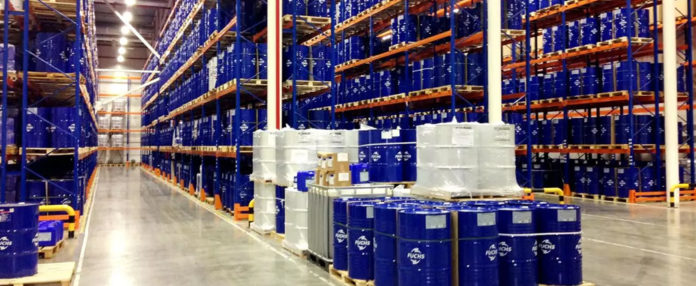In case anyone interpreted June comments by Fuchs Petrolub SE as indication that it was drawing down its operations in Russia, the German company said last week that it is ramping up sales in the market, which it considers too important to leave.
During a webinar last week, officials with Fuchs’ subsidiary in Russia said the company has introduced a number of new products in order to cope with unavailability of chemical additive packages from the industry’s main suppliers of those materials. The company plans to introduce additional products, officials said.
In the weeks and months following Russia’s February invasion of Ukraine, a number of Western lubricant marketers halted sales in Russia, in line with sanctions imposed by European Union nations and the United States. Those companies included Shell, ExxonMobil and TotalEnergies.
Fuchs, the world’s largest independent lubricant manufacturer, stated to Lube Report in June that it “no longer supplies raw materials and finished products to Russia. The local business in Russia operates on a limited basis, and products are only produced locally for the Russian market.” The company owns and operates a blending plant in the city of Kaluga with capacity to make 40,000 metric tons of finished lubes per year.
On Sept. 2, Fuchs’ subsidiary in Russia hosted a webinar discussing its operations in the country. Managing Director Nikolay Kuznetsov said the company has introduced a number of local products formulated with additive packages that replace those formerly supplied by the industry’s leading producers.
That part of the portfolio now includes motor oils meeting the API CI-4 specification for heavy-duty diesel engine oils and the API SN specification for gasoline engine oils; hydraulic oils, electrical transformer oils; metalworking fluids; and greases. Furthermore, it plans to resume production for Ganymet-branded oils for stationary gas engines and automotive antifreeze, Kuznetsov said.
A spokesperson at Fuchs’ headquarters in Mannheim, Germany, said today that the company has not altered the course of its operations in Russia since June and that its statement from then remains accurate. The spokesperson added, “Fuchs fully complies with all sanctions on a global basis. No technical support and/or delivery of products and/or raw materials to Russia are provided/shipped out of any Fuchs subsidiary worldwide.”
During the webinar officials discussed a variety of developments that have severely disrupted the global lubricants industry the past few years, including the COVID-19 pandemic, base oil shortages and accidents and severe weather that has hampered lubricant additive factories.
Officials did not mention that Infineum, Lubrizol, Chevron Oronite and Afton Chemical – which together supply most of the additive packages used by the global industry – all withdrew from Russia after the invasion of Ukraine. This has hamstrung the ability of lube blenders in the country to make products meeting the latest industry and original equipment manufacturer performance standards. Market sources have said lube companies have sought replacement additives from suppliers that lack approvals for the latest specs.
Kuznetsov acknowledged sanctions imposed against Russia by foreign governments and expressed concerns that the local lube market could feel new impacts from the latest round of measures, which took effect in late July.
He added that Moscow’s “parallel import” policy has not fully made up for lubricant supply lost due to the withdrawal of foreign companies, stating that lube imports to Russia are down by 15,000-20,000 tons per month since February. Under the program, Moscow publishes a list of sanctioned products that may be imported and sold within the country without regard for trademark and copyright protections.
